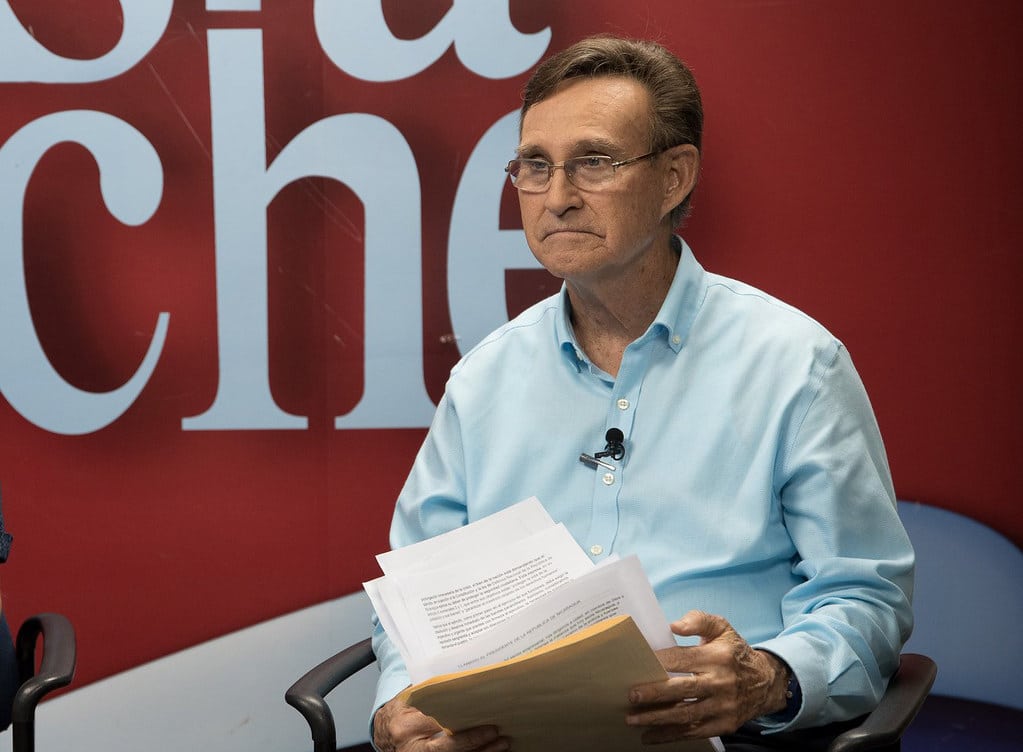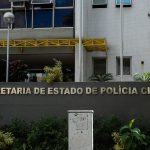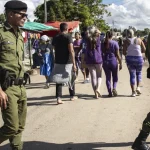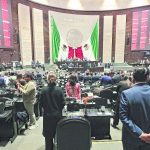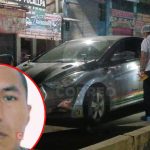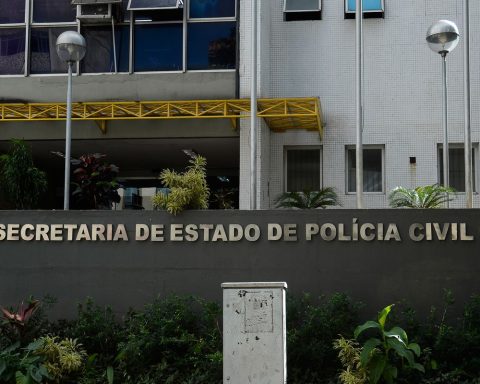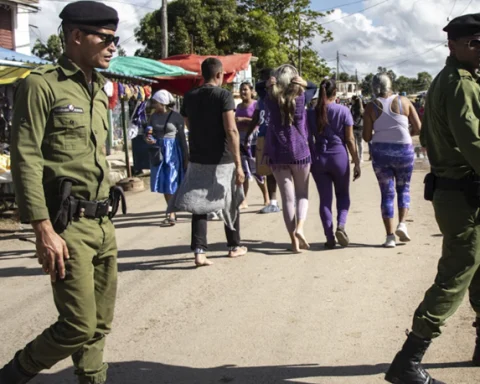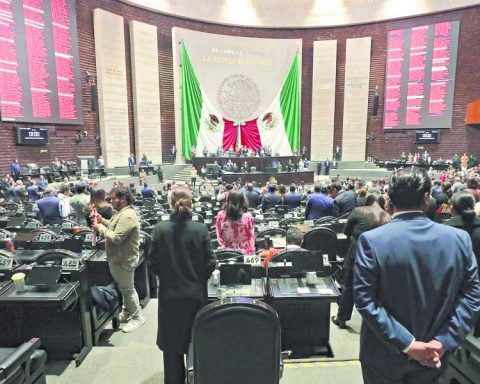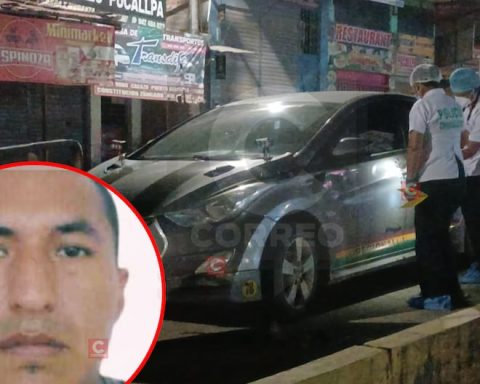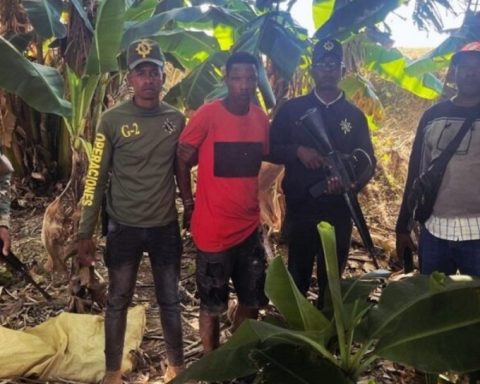The siege against Monsignor Rolando Álvarez, Bishop of the Diocese of Matagalpa, and the priest Harvin Padilla, from the San Juan Bautista parish, in Masaya, and the arrest of the priest Manuel Salvador García, from the Jesús de Nazareno temple, in Nandaime; It is an attempt by the regime of Daniel Ortega and Rosario Murillo to “frighten the Catholic Church” in order to “shut them up” in the face of human rights violations being committed in Nicaragua, values Nicaraguan sociologist Humberto Belli.
For Belli, this new escalation of repression —which began on May 15 with a nine-day permanent siege on Father Padilla and continued with the increased siege on Bishop Álvarez and the arrest of Father García on June 1— has a clear message. against bishops and priests in general. “You are liable to prison. The Government is not going to stop no matter how many cassocks they have and we are going with everything, that is, we are going to corner the Church”, he stressed.
“There will be no limits on repressive activity,” warned the sociologist, currently in exile due to the regime’s threat of imprisonment. The fact that they surrounded Monsignor Rolando Álvarez with the police on May 21 at the Santo Cristo de Las Colinas church in Managua “is a way of intimidating, of causing fear among the clergy, among the bishops, with the hope that they shut up, that they submit and enter into an complicit silence”, he stressed.
In recent weeks, the regime has also intensified its defamatory campaigns against bishops and priests of the Catholic Church, whom they describe as “terrorists” and “coup plotters” since 2018, when they denounced the repression and massacre that left more than 325 murdered between April and September of that year, and sheltered hundreds of attacked students and citizens.
In interview with CONFIDENTIAL and the program This weekwhich is broadcast online due to the regime’s television censorship, Belli questioned the “diplomatic” attitude that the Episcopal Conference has maintained in the face of this onslaught and demanded “that they pronounce themselves more forcefully.”
This first of June, the regime of Daniel Ortega arrested Father Manuel Salvador García, parish priest in Nandaime, how do you interpret this arrest?
For me it is an attempt to frighten the Church, to frighten the clergy, to imply that there will be no limits to the repressive activity that the government can launch against them. They want to send the message that “you are liable to prison, the Government is not going to stop no matter how many cassocks you have and we are going with everything, that is, we are going to corner the Church.”
On June 2, a woman identified as Martha Candelaria Rivas accused the priest without evidence of having beaten her on the night of May 30. How do you assess this complaint?
Those are fabricated charges that have been typical of the Sandinista Front and its ruler for a very long time. I remember that in the 1980s they set up a trap against Monsignor Silvio Peña, putting some sticks of dynamite in his car, a totally false accusation, but one that is typical of this type of regime that has no scruples in inventing anything to discredit, accuse and imprison their opponents.
Read: Salvadoran Bishops: “People of Nicaragua aspires to respect for fundamental rights”
What does this new phase of repression against the Church imply? Is it a direct threat to the bishops?
Absolutely. The fact that they have surrounded Monsignor Álvarez and other prelates with the police is a practice that they have already done in the past with opponents. First harass them, surround them and then throw them in jail. It is a way of telling them: “Get ready, you are probably going to jail.” It is a way of intimidating, of causing fear among the clergy, among the bishops, in the hope that they will shut up, that they submit and fall into complicit silence.
How do you expect the Nicaraguan parishioners or citizens to react to this escalation in aggression and attacks against the Church?
The Nicaraguan congregation or people are very inhibited from being able to speak out, there is a lot of fear. There is a police state where someone has not finished taking to the streets in protest when they have already been jailed. So, it is very difficult for the people to demonstrate in these circumstances, it would be an extraordinary act of courage, which could happen, but it is very difficult because there is a repressive apparatus that is well equipped and very ready to react immediately if they see any threat of protest.
Also: The prophetic voice of Monsignor Álvarez
How do you assess the position of the Episcopal Conference in the face of these events? There was a pronouncement when Monsignor Álvarez was harassed, but we still do not know of a reaction to the arrest of Father García?
Frankly, I saw this pronouncement as something timid, too restrained and too diplomatic. I believe that it is important that the ecclesiastical authorities pronounce themselves more forcefully when there is an open, undisguised persecution against the Church. I am going to cite Pope Pius XI as an example, who protested when the great persecution against the Church took place in Mexico in 1926 and then in 1932. He protested against this repression and even exhorted the bishops and the faithful to protest energetically within the framework of the law against the Mexican Government. So, I think it is very important, without fear, to raise your voice. Christ, the founder of the Church, was an extraordinarily brave man and he paid for his bravery with his life and this is the example that he gives us all Christians, you have to be brave to express, call evil, evil and good, good and defend with the word the rights of the Church.
Has the position of the Vatican been pointed out in the face of these events, including the expulsion of the apostolic nuncio, Waldemar Sommertag, last March?
At least when the nuncio was expelled, the Vatican Secretariat of State did speak out, deplored and criticized this act, and I imagine that such statements are approved by the Pope or by the highest levels close to the Pope, so the The Vatican has already spoken, but it would be very healthy if there were greater expressions of concern about what is happening in Nicaragua.
Also: The expulsion of the apostolic nuncio was forged in four incidents
Despite the seriousness of the situation, the besieged leaders have not made the decision to go into exile, as Bishop Silvio Báez (Auxiliary Bishop of Managua) had to do in 2019 by decision of Pope Francis. How do you interpret that position of the clergy?
It seems extraordinary to me, very meritorious to stay in the country. The easiest thing is to go into exile in the face of the danger of death or the danger of being arrested, especially a priest or a bishop who has a public role before the congregation. I think what they are doing with them is trying to get some to voluntarily go into exile.
This is not the first time that the Church has been persecuted in Nicaragua. How is it interpreted at this particular moment?
This is a symptom of how the government has taken a fairly strong turn towards totalitarianism, which it did not have at the beginning of the Ortega government. Once this shift has been made towards a much more repressive, much more dictatorial situation, it will be inevitable that the clashes with the Church will intensify, because the Church will not stand idly by in the face of an increase in abuse, in the face of increased oppression. So, the government is already, let’s say, curing its health, saying let’s hit first. What we can predict is that the tensions will continue and I do not know which priests will go to prison, or will be beaten, tortured, but we must be prepared for very strong actions against the clergy, because the Government has shown that it does not have major restrictions Regarding their actions, they are willing to pay any political cost that their actions have, even when this is detrimental to them in the medium and long term.
Is it an option for the Church to remain silent?
Whoever is a follower of Christ cannot remain silent in the face of this situation, one must take a courageous attitude, always telling the truth, no matter what the cost.
